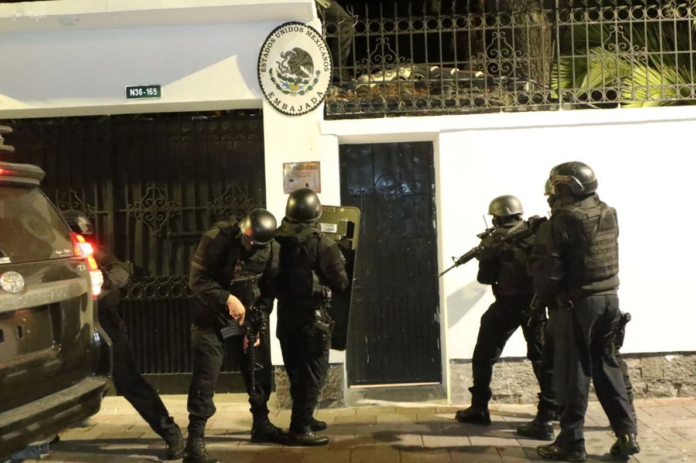Mexico announced the abrupt severance of its diplomatic ties with Ecuador. This drastic move came after Ecuadorian police forces brazenly stormed the Mexican Embassy in Quito, detaining Jorge Glas, the former Vice President of Ecuador, who was in the process of seeking asylum. Glas, who served under the administration of former President Rafael Correa, asserts that the corruption charges leading to his conviction are politically motivated, casting a shadow of authoritarianism over Ecuador’s current government.
The invasion, described by Mexican President Andrés Manuel López Obrador as “a flagrant violation of international law,” has not only strained relations between the two nations but also highlighted the tensions between respect for sovereignty and the pursuit of domestic legal actions. Alicia Bárcena, Mexico’s Secretary of Foreign Affairs, condemned the raid as a breach of the Vienna Convention on Diplomatic Relations, emphasizing the gravity of the injuries suffered by Mexican diplomatic personnel during the intrusion.
This incident has drawn widespread condemnation across Latin America, with nations including Argentina, Brazil, Chile, and Venezuela, among others, voicing their disapproval. The violation of the Mexican Embassy’s inviolability is seen not just as an affront to Mexico but as a dangerous precedent that threatens the foundational principles of diplomatic engagement and asylum.
The broader implications of this event extend to the international legal arena, with Mexico vowing to take the matter to the International Court of Justice. The collective outrage and response from the Community of Latin American and Caribbean States (CELAC), under the leadership of Honduran President Xiomara Castro de Zelaya, signify a regional commitment to uphold the sanctity of diplomatic spaces and the rights of asylum seekers.
This episode raises critical questions about the balance between enforcing domestic legal judgments and adhering to international diplomatic norms. It also puts into stark relief the political divisions within Ecuador and the contentious nature of its justice system under the shadow of political pursuits. As Latin America and the world watch closely, the resolution of this conflict could set new precedents for diplomatic relations and the protection of political refugees, marking a pivotal moment in the interplay between national sovereignty and international law.



